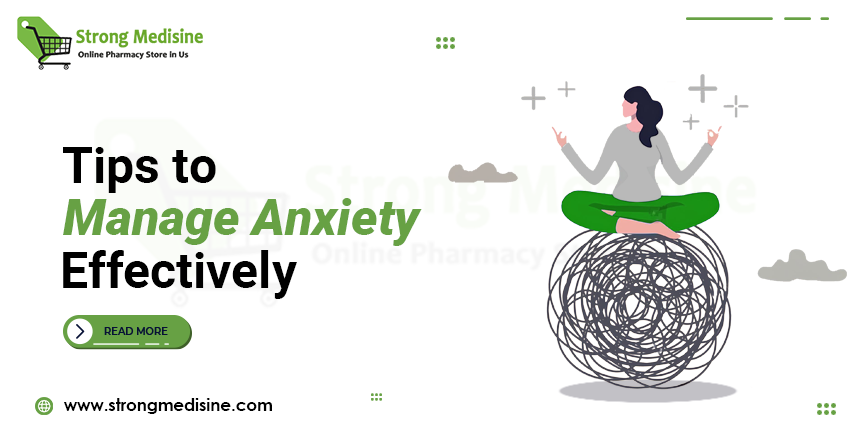
Anxiety is a common experience for many people, and can often be overwhelming. However, with the right strategies, it is possible to manage anxiety effectively and embrace a sense of calm in your daily life. In this blog, we will explore various tips and techniques to help you effectively manage anxiety and cultivate a greater sense of peace and tranquility.
Understanding Manage Anxiety
Before we delve into the tips for managing anxiety, it’s important to understand what anxiety is and how it can manifest. Anxiety is a natural response to stress, but when it becomes excessive and persistent, it can interfere with our daily functioning. Symptoms of anxiety can include racing thoughts, restlessness, irritability, difficulty concentrating, and physical manifestations such as rapid heartbeat and shortness of breath.
Tip 1: Practice Mindfulness and Deep Breathing
One effective technique for managing anxiety is to practice mindfulness and deep breathing. Mindfulness involves focusing on the present moment without judgment. This can help to reduce ruminative thoughts and bring your awareness back to the present. Additionally, deep breathing exercises can trigger the body’s relaxation response, calming your nervous system and manage anxiety.
Tip 2: Get Adequate Sleep and Exercise
Adequate sleep and regular exercise are essential for managing anxiety. Lack of sleep can exacerbate anxiety symptoms, so it’s important to prioritize good sleep hygiene. Establishing a consistent sleep routine and creating a relaxing bedtime ritual can help improve the quality of your sleep. In addition, regular physical activity has been shown to manage anxiety and stress. Even a short walk or yoga session can have a positive impact on your mental well-being.
Tip 3: Establish a Support System
Having a strong support system can be immensely beneficial in managing anxiety. Whether it’s friends, family, or a therapist, having people to lean on can provide emotional support and practical assistance. Talking to someone you trust about your feelings can help alleviate the burden of anxiety and provide a fresh perspective on your concerns.
Tip 4: Limit Stimulants and Prioritize Nutrition
Certain substances like caffeine and alcohol can exacerbate anxiety symptoms. Consider reducing your intake of stimulants and incorporating more calming, nutritious foods into your diet. Consuming a balanced diet rich in fruits, vegetables, whole grains, and lean proteins can provide the essential nutrients your body and mind need to function optimally.
Tip 5: Engage in Relaxation Activities
Engaging in relaxation activities such as meditation, yoga, or spending time in nature can significantly manage anxiety. These activities promote a sense of calm, centering your mind and body and helping you to release tension. Finding activities that bring you joy and relaxation can be a powerful tool in managing anxiety and promoting overall well-being.
Tip 6: Challenge Negative Thoughts
Anxiety is often fueled by negative thought patterns. Learning to challenge and reframe these thoughts can help reduce anxiety and shift your perspective. Cognitive-behavioral techniques, such as identifying and challenging irrational beliefs, can be particularly helpful in managing anxiety. By replacing negative thoughts with more balanced and realistic ones, you can change the way you respond to stressful situations.
Conclusion
Managing anxiety effectively and embracing calm requires a multi-faceted approach, incorporating strategies for both the mind and body. By practicing mindfulness, getting adequate sleep and exercise, establishing a support system, prioritizing nutrition, engaging in relaxation activities, and challenging negative thoughts, you can cultivate a greater sense of calm in your life. Remember that managing anxiety is a process, and it’s important to be patient and kind to yourself as you implement these techniques. With dedication and persistence, you can learn to manage anxiety effectively and live a more peaceful, fulfilling life.

Leave a Reply